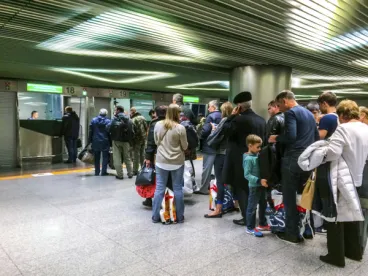The Trump Administration would like to institute a “points-based” or “merit-based” immigration system, cut down on family-based immigration and eliminate the Diversity Lottery. To date, Congress has not passed any such changes to immigration laws and the Diversity Lottery remains in effect. This year, 55,000 visas will be available. Diversity visas are available to people from countries with historically low rates of immigration to the United States.
While the Diversity Lottery represents only a small portion of the visas available each year and the odds of success in obtaining visas are low, it is a popular program and receives a lot of attention. Individuals from approximately 200 countries take a chance and enter the Diversity Lottery each year. In FY 2018, the countries with the highest number of applications were Uzbekistan (2,114,446), Ukraine (1,450,487), Nepal (1,187,350) and Sierra Leone (1,011,725). These numbers represent approximately 3% to 6% of the populations of those countries. Only a small fraction of the applicants are selected. In FY 2018, Uzbekistan “won” 4,494, Ukraine 4,478, Nepal 4,097 and Sierra Leone 1,790.
Changes in this year’s Diversity Lottery requirements have led to some unintended consequences. A passport number is now required for entry into the Diversity Lottery. Following the announcement, Nepal has experienced a rush on passport applications. According to the Nepalese Department of Passports (DOP), on an average day the DOP would receive 500 passport applications. But since the Diversity Lottery opened on October 2, 2019, DOP has been receiving approximately 2,800 applications per day primarily from applicants aged 18 to 45. In the ordinary course, it takes about 15 days to acquire a passport in Nepal. To meet the demand and try to ensure that all applicants receive their passports in time to register for the Diversity Lottery before it closes on November 5, 2019, DOP is shifting staff, adding more security personnel and increasing working hours. These changes will remain in force until the number of passport applicants reverts to “normal.”




 />i
/>i

